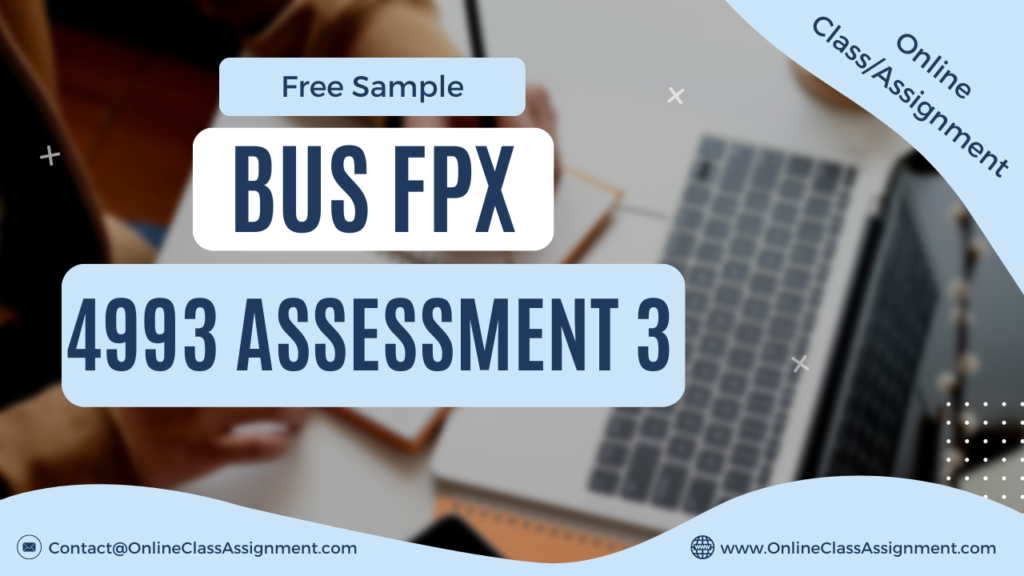
BUS FPX 4993 Assessment 3 Environmental Scan
Student Name
Capella University
BUS-FPX4993 Business Capstone Project
Prof. Name
Date
Environmental Scan
An environmental scan is a strategic activity carried out to evaluate trends that can affect the marketplace or industry. One of the key purposes of an environmental scan on an individual level is to help identify the range of forces or variables that can spark the emergence of new trends or that can challenge the relevance of skills and knowledge.
Internal Factors
The organization I currently work for provides a diversity of programs designed for employee development. As the nature of competition in the workplace rapidly changes, it is a great opportunity for me to participate in available programs for employees (Gurchiek, 2022). Industry practices governing healthcare are rapidly advancing which also requires professionals to adapt by learning how to work with new programs, primarily those used for information and data management (Beer & Mulder, 2020). Continuing education is another important factor that employees must take advantage of for professional development and career advancement.
Employees aiming to pursue a supervisory or managerial role are required to study pertinent courses so that they can develop appropriate theoretical and conceptual knowledge for their desired role in the organization (Dachner et al., 2021). The support that the organization provides for its employees encourages them to pursue higher educational goals to aid in their professional aspirations and goals. Employees’ success in the workplace is not only about awards and recognition. Having a trusting and dynamic relationship with colleagues, a high level of customer confidence, and a strong working relationship with suppliers are also indicators of employee success in their respective job roles. As such, opportunities in the workplace to build positive and harmonious interactions with peers are helpful in career advancement and professional growth as well (Ouakouak & Ouedraogo, 2018).
External Factors
The healthcare industry and its different markets and niches are sensitive to price fluctuations because it affects customers’ attitudes about the cost of healthcare services. Our organization can use this threat and transform it into an opportunity to tailor its services to meet the cost concerns of customers. By streamlining service processes, the organization can reduce unnecessary expenditures and maintain service costs affordable for the clients (Zhao et al., 2021). Customers nowadays are also very conscious about accessibility to information and data in making informed decisions before acquiring a specific kind of service.
Our organization can use this variable in tailoring its service methodologies so that we can make as much pertinent information accessible as possible for every single type of client (Sima et al., 2020). This can affect the short-term goal of the organization based on current efforts to make healthcare data accessible to customers. This factor also affects the long-term IT and data management decisions of the organization which will also require employee training and organization-wide change. The patient care industry is significantly affected by the orientation of healthcare providers. As more and more customers demand personalized service design, healthcare providers are expected to transform their services into a customer-centric environment (Azim et al., 2021).
This poses a challenge for our organization because it will require the management to carry out appropriate training to help its staff learn the right customer-centric behaviors which will also require spending. On the other hand, this is an opportunity for long-term service improvement of the organization. The cost that the management will spend on the training can be considered an investment. The value earned from this HR investment can be measured in various ways such as the level of client retention, satisfaction rate, and organizational profitability.
Conclusion
Internal and external forces can affect the short-term and long-term decisions and strategies of an organization. The combination of internal and external forces can also shape individuals’ career plans that may challenge people’s capabilities while offering a myriad of opportunities that can generate additional benefits for one’s professional outlook.
References
Azeem, M., Aziz, S., Shahid, J., Hayat, A., Ahmed, M., & Khan, M. I. (2021). The impact of customer-centric business strategies on customer relationship management: pharmaceutical fieldforce perspective. International Journal of Pharmaceutical and Healthcare Marketing, 16(1), 138-154. https://doi.org/10.1108/IJPHM-09-2020-0083
Beer, P. & Mulder, R. (2020). The Effects of Technological Developments on Work and Their Implications for Continuous Vocational Education and Training: A Systematic Review. Frontiers in Psychology. https://doi.org/10.3389/fpsyg.2020.00918
Dachner, A. M., Ellingson, J. E., Noe, R. A., & Saxton, B. M. (2021). The future of employee development. Human Resource Management Review, 31(2), 100732.
BUS FPX 4993 Assessment 3 Environmental Scan
Gurchiek, K. (2022, Aug 19). Report: Employers Reap Benefits of Employee Training When Done Right. Society for Human Resource Development. https://www.shrm.org/resourcesandtools/hr-topics/organizational-and-employeedevelopment/pages/report-employers-reap-benefits-of-employee-training-when-done-right.aspx
Ouakouak, M. L., & Ouedraogo, N. (2018). Fostering knowledge sharing and knowledge utilization: The impact of organizational commitment and trust. Business Process Management Journal, 25(4), 757-779. https://doi.org/10.1108/BPMJ-05-2017-0107
Sima, V., Gheorghe, I. G., Subić, J., & Nancu, D. (2020). Influences of the industry 4.0 revolution on the human capital development and consumer behavior: A systematic review. Sustainability, 12(10), 4035.
Zhao, H., Yao, X., Liu, Z. & Yang, Q. (2021). Imp
BUS FPX 4993 Assessment 3 Environmental Scan
Get Capella University Free Business Samples
BUS FPX 3007
BUS FPX 3011
BUS FPX 3021
BUS FPX 3022
BUS FPX 3030
BUS FPX 3040
BUS FPX 3050
BUS FPX 4012
